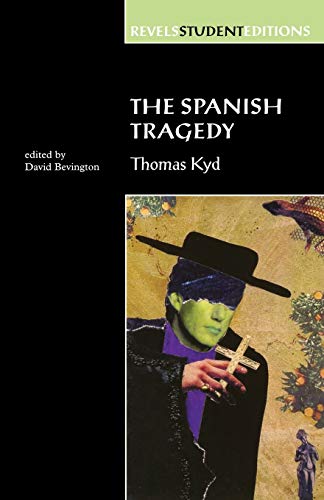-
David Jones: Mythmaker
Elizabeth Ward
Hardcover (Manchester Univ Pr, Dec. 1, 1983)None
-
Science, Culture and Popular Belief in Renaissance Europe
Stephen Pumfrey, Paolo L. Rossi, Maurice Slawinski
Hardcover (Manchester Univ Pr, Feb. 1, 1991)A collection of new essays focusing on science and cultural change, while exploring the interaction of traditional disciplines (theology, history, law) and the emerging empirical and mathematical science. It also draws upon material from magic, witchcraft and popular occultism.
-
Imperialism and Juvenile Literature
Jeffrey Richards
Hardcover (Manchester Univ Pr, May 1, 1989)None
-
Science, Culture and Popular Belief in Renaissance Europe
Stephen Pumfrey, Paolo L. Rossi, Maurice Slawinski
Paperback (Manchester Univ Pr, )None
-
A Commitment to Campaign: A Sociological Study of Cnd
John Mattausch
Hardcover (Manchester Univ Pr, Sept. 1, 1989)Brief text and illustrations introduce the habits and habitats of a variety of animals Q
Q
-
Propaganda and Empire: The Manipulation of British Public Opinion, 1880-1960
John M. MacKenzie
Hardcover (Manchester Univ Pr, July 1, 1984)None
-
Cymbeline
Roger Warren
Hardcover (Manchester Univ Pr, Oct. 1, 1989)None
-
Propaganda and Empire: The manipulation of British public opinion, 1880–1960
John M. MacKenzie
Paperback (Manchester University Press, Jan. 15, 1988)It has been said that the British Empire, on which the sun never set, meant little to the man in the street. Apart from the jingoist eruptions at the death of Gordon or the relief of Mafeking he remained stonily indifferent to the imperial destiny that beckoned his rulers so alluringly. Strange, then that for three-quarters of a century it was scarcely possible to buy a bar of soap or a tin of biscuits without being reminded of the idea of Empire. Packaging, postcards, music hall, cinema, boy's stories and school books, exhibitions and parades, all conveyed the message that Empire was an adventure and an ennobling responsibility. Army and navy were a sure shield for the mother country and the subject peoples alike. Boys' brigades and Scouts stiffened the backbone of youth who flocked to join. In this illuminating study John M. Mackenzie explores the manifestations of the imperial idea, from the trappings of royalty through writers like G. A. Henty to the humble cigarette card. He shows that it was so powerful and pervasive that it outlived the passing of Empire itself and, as events such as the Falklands 'adventure' showed, the embers continue to smoulder.
-
The Spanish Tragedy
David Bevington
Paperback (Manchester University Press, May 15, 1996)The "revenge" play became the most durable and commercially successful type of drama on the Elizabethan stage. This example by Thomas Kyd, who was one of the originators of the genre, brings to life the intrigues of the Spanish court, dramatically juxtaposing romantic passion with sudden violent death and clandestine politics. The ghost of Dan Andrea and his guide Revenge observe the dark and bloody action throughout, provoking questions about the nature of the human condition.
-
Trash or treasure: Censorship and the changing meanings of the video nasties
Kate Egan
Paperback (Manchester University Press, June 15, 2012)Trash or treasure is a wide-ranging historical study of the British circulation of the video nasties - a term that was originally coined to ban a group of horror videos in Britain in the 1980s but which continues to have cultural resonance in Britain up to the present day.The book is divided into three sections, which represent the key periods of existence of the nasties category - the formation of the term in the 1980s, the fan culture that formed around the nasties subsequent to their banning under the video recordings act and the DVD and theatrical re-release of some of the titles from 1990 onwards. Through an exploration of a range of relevant historical materials (from film reviews to fan websites, to video advertising materials) the book examines how this unusual, historically-specific genre category was formulated in a particular context, and then used (for different reasons) by moral campaigners, distributors, critics and fans.By examining the discourses that inform the circulation of a group of banned films (including the growth of DVD, the internet and the academic rehabilitation of horror films), the book argues that censorship is not just about rules and regulations, but also about the material, cultural and commercial consequences of a censorhsip act of law.It will be of great interest to lecturers and students of film, popular culture and the media, as well as enthusiasts of horror films and those interested in film censorship debates.
-
Florence Nightingale
Sue M. Goldie
Paperback (Manchester University Press, Aug. 15, 1997)The letters in this volume come from the period in Florence Nightingale's life that brought her lasting fame. The letters, written amid scenes of horror and chaos, to officials, family and friends, express her hopes and fears and the doubts and frustrations of her arduous service.
-
Trash or treasure: Censorship and the changing meanings of the video nasties
Kate Egan
Hardcover (Manchester University Press, March 15, 2008)Trash or treasure is a wide-ranging historical study of the British circulation of the video nasties - a term that was originally coined in order to ban a group of horror videos in Britain in the 1980s. Through an exploration of the range of historical materials, the book examines how this unusual genre category was formulated in a particular context and then used (for different reasons) by moral campaigners, distributors, critics and fans.By examining the discourses that inform the circulation of a group of banned films, the book argues that censorship is not just about rules and regulations, but also about the discourses that generate censorship, and the cultural and commercial consequences of a censorship act or law.The book will be of great interest to lecturers and students of film and popular culture, as well as enthusiasts of horror films and those interested in film censorship debates.